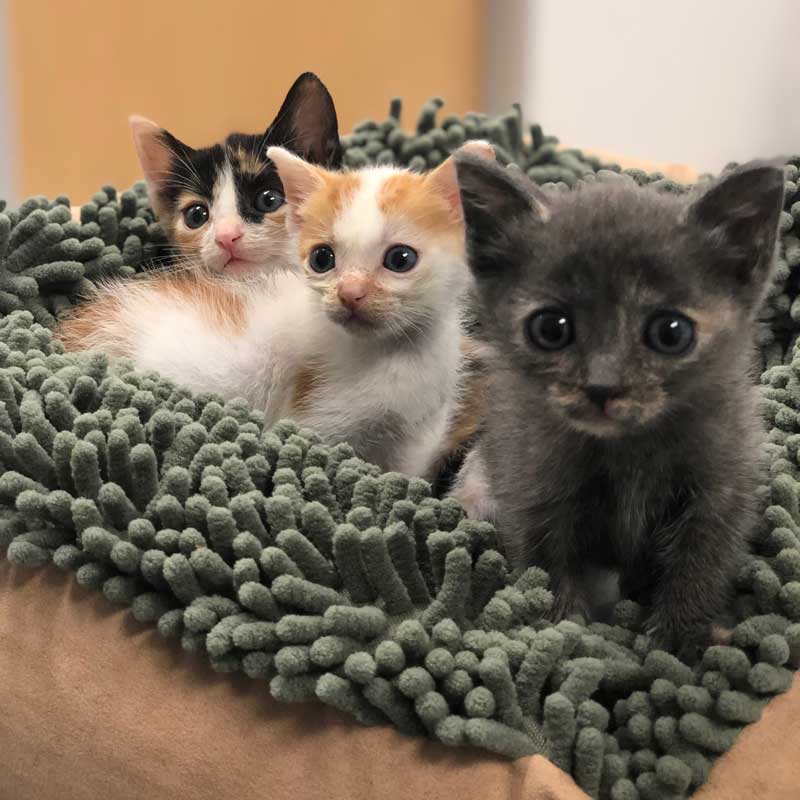Kitten Information
FeLV/FIV Testing
FeLV and FIV are two viral diseases that can be transmitted to kittens from their mothers. As a result, every new kitten (or adult cat) should be tested for feline leukemia (FeLV) and feline immunodeficiency virus (FIV). Both of these viruses are contagious and can be life-threatening.
Vaccines
Vaccines are critical to the health of your new kitten.
FVRCP is a 3-way vaccine used to help protect against viral upper airway infections and gastrointestinal diseases. It is a series of between 2-4 vaccines.
FeLV is also known as the Feline Leukemia Virus vaccine. FeLV infection can attack the immune system and can be life-threatening. FeLV is transmitted by infected cats through blood and saliva, so if your kitten will be strictly indoors, this vaccine may not be necessary.
Rabies is a vaccine given to kittens over 16 weeks of age in California to protect against the rabies virus. It is important and required by county law, due to human health concerns.
Vaccine Reactions
Typically pets will feel sleepy or sore the day they receive the vaccines. They may also run a low-grade fever. We have taken great care to provide what we feel are the safest vaccines available for your pet, but there is a slight chance that vaccines can predispose cats to tumor development. ?
Additional Information
Fleas
Fleas can be a nuisance and health risk to you and your pet. Once they infect your pet and home, they can be more difficult to get rid of so we recommend treatment even if you aren’t seeing fleas currently. Polk Street Animal Hospital carries:
Revolution (>6 wks) topical insecticide which kills fleas, some ticks, and
some internal parasites.
Fecal Exam
There are many intestinal parasites your kitten can carry. It is very important to bring in a fecal sample for us to evaluate with special testing under a microscope. Some parasites are transmissible to humans (zoonotic) so this is a critical step for the health of your pet and the protection of your family.
Diet
Kittens should be fed a commercially available and balanced kitten diet of moist or dry food from weaning until 1 yr of age. We do not currently recommend any of the “raw” or “grain-free” diets for kittens. Ideally, train your kitten to be meal fed rather than free feeding. This will help control problems with obesity that could develop later in life.
Toxicities
Although rare, kittens are more likely to be exposed to toxins than adult cats. Radiator fluid, lilies, garlic, onions, grapes, and raisins can all be extremely toxic to cats. Please call if you think your cat has been exposed.
Spay & Neuter
We recommend your kitten be spayed or neutered at 5-6 months of age. Neutering your male kitten will help reduce the risk of spraying and marking behaviors. Sterilizing your pet is the most responsible choice you can make to prevent cat overpopulation.

